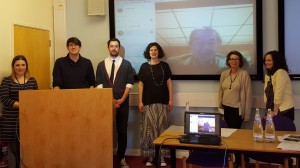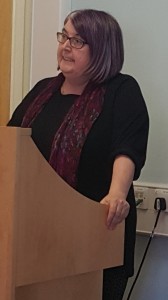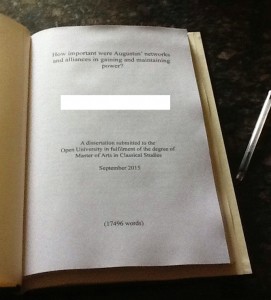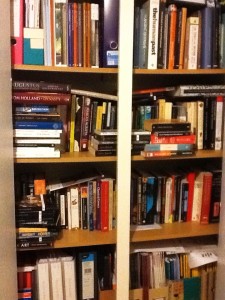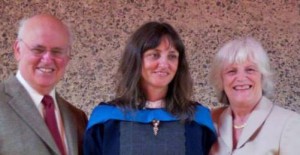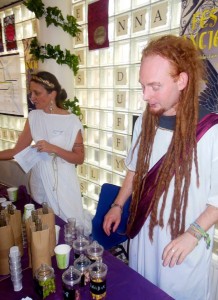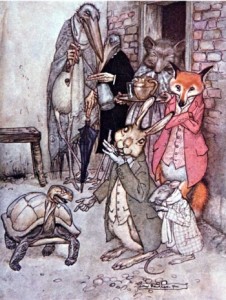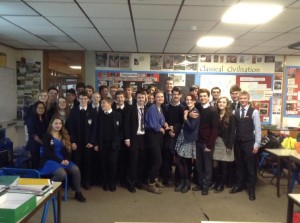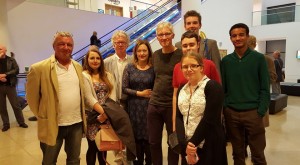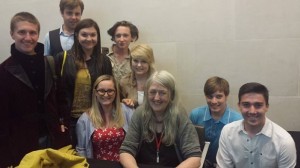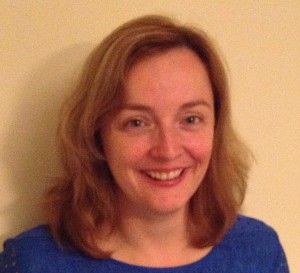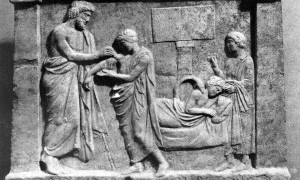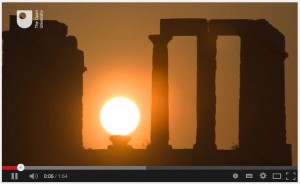Classical Studies PhD student Sophie Raudnitz reports on this year’s annual postgraduate work-in-progress event, which took place in Milton Keynes on 5th May 2016.
I am writing this as I bask in the aftermath of a fantastic Open University Postgraduate Work in Progress Day at Walton Hall last week. I took part in my first one of these last year, six months into my PhD. It was the first time that I had presented a conference paper and I was very grateful for the opportunity to do so in such a supportive and friendly environment. I also relished the fact that the day made me feel part of a wider community of OU classicists. The day was a real eye-opener in terms of the variety of work going on under the umbrella of Classical Studies at the university.
Because of this positive experience last year, when Emma Bridges said that the department was looking for a PhD student to help with the organisation this year and asked me if I might be interested, I was happy to get involved. You’ll be relieved to hear that I won’t say much about this process but a couple of things stood out. I was amazed by the number of responses to my initial ‘save the date’ email from MA students all over the world. Most of them, understandably, could not come to Milton Keynes for a one day conference but the level of interest and the strength of positive feeling towards the OU were particularly heart-warming. As it was, we had an MA speaker, Silvana Delatte, who came over from Switzerland and a PhD student, Dominic Solly, who joined us on Skype from New York. Many of those from the UK also travelled great distances to be there. My other ‘moment’ came as I was compiling speakers’ biographies for the panel I was chairing: I am in awe of the way in which the OU brings together people from such disparate backgrounds, leading such different lives.
Luckily, a good number of people offered papers without my having to coax at all. We decided to take a relatively formal approach to this year’s conference in asking speakers to submit abstracts, really for the practice that this affords rather than because of any competitive or exclusive element. Emma and I both felt strongly that everyone who wanted to speak should have the opportunity to do so but that the rigour of writing and submitting abstracts and of sticking to word and time limits was worth encouraging too. Again, this process was made very easy by the cooperation of all involved. The final programme consisted of one MA student and eight PhD students, at various points into their studies – from 4 months in to near completion. Taking various factors into account, like travel plans and East Coast Time, I tried to organise the programme in such a way that there was some kind of thematic connection within each of the three panels and I think the day showed the success of this. I certainly found that ideas from previous papers fed very naturally into the way I thought about subsequent ones.
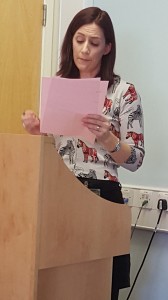
PhD student Catherine Hoggarth speaking about ‘A multisensory exploration of movement across Rome’s urban bridges’
Like last year’s Work in Progress Day, this year’s was almost unadulteratedly great, aside from the inevitable IT stress at the start. Everyone listened, commented and questioned generously and positively and I think that we all appreciated the opportunity to take part. We heard papers on a wide variety of subjects and it was great to see the range of approaches used and to hear the genuine enthusiasm with which people discussed their work. Suffice it to say that Stuart McKie kicked off thinking about gestures of binding and unbinding and shared with us his experiments in sitting at his desk and holding his thumbs, while the day ended with Claire Greenhalgh inviting us to think about ideas of slavery and liberty in Starz’s Spartacus, with adventures in chicken catching and, frankly, many more votive penises than I was expecting, on the way. As a result of Stuart’s paper on body language and magic, I for one, found myself acutely conscious of the way I was crossing my legs or clasping my hands for the rest of the day. After listening to Catherine Hoggarth speaking about on the sensory experience associated with crossing Roman bridges, I became very contemplative about the bridge over the river into my town as I drove home that evening.
Several of us live tweeted furiously, fingers flying, under the hashtag #OUCSWiP – for a flavour of the topics discussed you can read a Storify of the event here. This was my first foray into live tweeting; I have previously held back as I’m not good at multi-tasking at the best of times. Actually it really added to the experience, allowing me to focus better, and seeing the bank of tweets mounting up from other tweeters was genuinely exciting!
I hope that everyone found the day as rewarding and enjoyable as I did and would really like to thank all those who came along. As you can tell, I’m still on a bit of a high. I’d also like to thank the department for laying on this day for us (and to so many staff members for giving up their time to come along). I hope that the PG WiP Day remains an institution and I’m already very much looking forward to next year’s!
Editor’s note: You can also find Sophie on Twitter @seraudnitz
